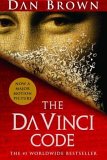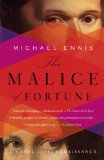Summary | Excerpt | Reading Guide | Reviews | Read-Alikes | Genres & Themes | Author Bio

From the book jacket: While in Paris on business, Harvard symbologist Robert Langdon receives an urgent late-night phone call: the elderly curator of the Louvre has been murdered inside the museum. Near the body, police have found a baffling cipher. While working to solve the enigmatic riddle, Langdon is stunned to discover it leads to a trail of clues hidden in the works of Da Vinci -- clues visible for all to see -- yet ingeniously disguised by the painter.
Langdon joins forces with a gifted French cryptologist, Sophie Neveu, and learns the late curator was involved in the Priory of Sion -- an actual secret society whose members included Sir Isaac Newton, Botticelli, Victor Hugo, and Da Vinci, among others.
In a breathless race through Paris, London, and beyond, Langdon and Neveu match wits with a faceless powerbroker who seems to anticipate their every move. Unless Langdon and Neveu can decipher the labyrinthine puzzle in time, the Priory's ancient secret -- and an explosive historical truth -- will be lost forever.
Comment: I doubt there is one person reading this who needs an introduction to The Da Vinci Code - so let me instead share a little story about the author instead.
Many moons ago, back in 2000, I was contacted by Blythe, who (like many spouses) was working hard to promote her husband, a mid-list author who had just published his third book. His first two books had had moderate success in some markets but he was a long way from 'breaking out'. I read the book and enjoyed it very much, and told her that I would be recommending it at BookBrowse sometime soon.
A few days later she rang back asking if it might be possible for me to speed up the writing of the review, because (to the best of my recollection) they were going to a party in a few days and it was possible there might be a movie producer there and they hoped to discuss the book with him. I was happy to help and sent them my review shortly afterwards. History doesn't relate whether a conversation was ever had with the producer, but if it was I bet he's kicking himself now - because as you've probably guessed, the author was Dan Brown and the book was Angels & Demons. Two years later, Dan moved to a different publishing house, who decided to put a serious push behind his fourth book, The Da Vinci Code and, as they say, the rest is history.
The purpose of this story is not to claim any sort of intimate friendship with either Dan or Blythe but simply to provide a tiny shred of balance against the ridiculous mystique that has arisen about Dan and his books - to the point that the subject of his next book isn't even public, but books are already being published about the predicted theme!
I don't claim to know either of them well, but from our occasional conversations over the last six years, I have the impression of two very nice people who, by trial and error, and shear hard graft, hit on a successful writing formula (Blythe is an art historian and painter who collaborates with Dan on his research).
The bottom line is that The Da Vinci Code is a fun read (although personally I thought Angels & Demons was a little stronger), but at the end of the day, it's just a book, and Dan is nothing more or less than a nice guy who set out to earn a living writing entertaining fiction - and accidentally spawned an industry!
![]() This review
first ran in the April 7, 2006
issue of BookBrowse Recommends.
This review
first ran in the April 7, 2006
issue of BookBrowse Recommends.

If you liked The Da Vinci Code, try these:

by Danielle Trussoni
Published 2024
Two sisters. A lost imperial treasure. The world's greatest puzzle master has twenty-four hours to solve the most dangerous mystery of his life ... or die trying, in the new novel from the New York Times bestselling author of The Puzzle Master, hailed as "thrilling" by David Baldacci.

by Michael Ennis
Published 2013
Against a teeming canvas of Borgia politics, Niccolò Machiavelli and Leonardo da Vinci come together to unmask an enigmatic serial killer, as we learn the secret history behind one of the most controversial works in the western canon, The Prince.
Your guide toexceptional books
BookBrowse seeks out and recommends the best in contemporary fiction and nonfiction—books that not only engage and entertain but also deepen our understanding of ourselves and the world around us.